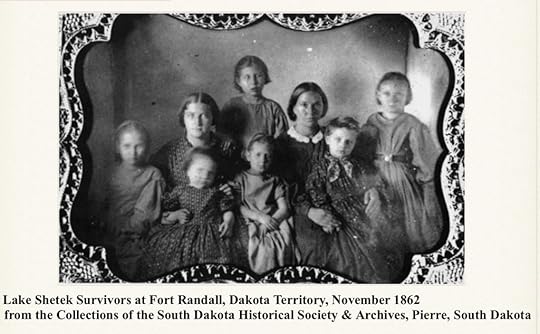Remembering Laura Duley: A Life of Resilience Amidst Tragedy
In a recent blog post, I highlighted Never Let Go by Pamela Nowak, a remarkable novel that reimagines the life of Laura Duley. Through historical fiction, Nowak gives voice to a woman whose experiences of loss, survival, and resilience during the U.S.–Dakota War of 1862 deserve to be remembered. Historical fiction, when done well, has the power to breathe life into the silences left by history, and Nowak does this with great care.
Laura’s story is both heartbreaking and inspiring. Born on April 21, 1828, in Indiana, she married William J. Duley in 1848 and became the mother of eight children. By 1856, the family had settled in Minnesota, eventually moving to a small settlement at Lake Shetek in Murray County. But Laura’s life was marked by extraordinary loss. Two of her daughters drowned in the Mississippi River before the family ever reached Lake Shetek, and another child died in infancy.

On August 20, 1862, tragedy struck again when Dakota warriors attacked the Lake Shetek settlement, unaware that war had already erupted two days earlier at the Lower Sioux Agency. During the violence, three of Laura’s children—Willie, Isabella, and infant Francis—were killed. Laura herself, along with her surviving children Jefferson and Emma, was taken captive. Pregnant at the time, she endured weeks of forced marches, repeated assaults, and the eventual loss of her unborn child.
In November, with the help of Charles and Matilda Galpin and the remarkable bravery of the Fool Soldiers—a group of young Lakota men who risked their lives to save captives—Laura and her children were freed. She was reunited with William, who had believed them all dead. But the trauma of captivity, coupled with the grief of losing nearly all of her children, shaped the rest of her life.
The Duleys eventually rebuilt a life together, farming in Blue Earth County before moving first to Alabama and later to Tacoma, Washington, where their son Jefferson served as Chief of Police. Laura lived until 1900, outliving her husband and several of her children. Her strength in the face of unimaginable hardship is a testament to endurance and survival on the frontier.
Laura’s story is inextricably bound to that of her husband, William J. Duley. History remembers him as the executioner who cut the rope that ended the lives of 38 Dakota men in Mankato on December 26, 1862—the largest mass execution in U.S. history. His role, and the legacy it leaves, remains controversial. Together, Laura and William embody the human complexities of this difficult period in Minnesota’s past—stories of grief, vengeance, survival, and resilience.
As an author, I find myself returning to the Duleys’ life again and again. My hope is that my next novel will reimagine Laura and William’s lives in the years following the U.S.–Dakota War—exploring not only the tragedy they endured, but also the ways in which they sought to move forward. Their story, like so many from this era, asks us to confront painful truths about violence, survival, and the legacies of the past.
For those who want to learn more about Laura’s story, you can visit the Minnesota Historical Society’s U.S.–Dakota War website, which shares her personal account and the broader history of the conflict. You can also find her memorial at Find a Grave.

Colin Mustful is an author, historian, editor, and publishing professional. He is the founder and editor of History Through Fiction, an independent press dedicated to publishing historical narratives that are both authentic and engaging. As a novelist, Mustful has written five works of historical fiction exploring the complex histories of settler-colonialism and Native displacement in Minnesota. His novel Reclaiming Mni Sota won the Midwest Book Award for Literary/Contemporary/Historical Fiction.
Alongside his writing, Mustful has built a career helping authors navigate the publishing process through editing, book coaching, and education. He holds an MA in history and an MFA in creative writing, and he frequently speaks on the craft and business of historical fiction. Residing in Minneapolis, Minnesota, he balances his professional work with running, playing soccer, and advocating for the importance of history in shaping a more just and sustainable future.



